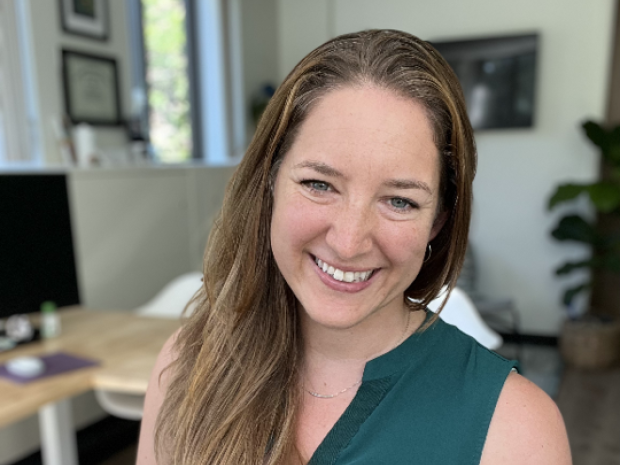Nanotherapeutics for neonatal and pediatric brain disease

Speaker:
Elizabeth Nance, PhD (she/her)
Jagjeet and Janice Bindra Endowed Career Development Associate Professor
Associate Chair of Undergraduate Studies
Department of Chemical Engineering
University of Washington
Dr. Elizabeth Nance joined the University of Washington in September 2015, and is currently the Jagjeet and Janice Bindra Career Development Endowed Associate Professor in Chemical Engineering, Associate Professor of Bioengineering, and adjunct professor in Radiology and the eScience Institute. She also serves as the Associate Chair for Undergraduate Studies in Chemical Engineering. Elizabeth received her B.S. in Chemical Engineering from NC State University, and her Ph.D. from Johns Hopkins University in Chemical & Biomolecular Engineering with Dr. Justin Hanes, with a focus on developing nanomedicine for treating brain cancer. She then completed a postdoc with Dr. Sujatha Kannan in Anesthesiology and Critical Care Medicine at Johns Hopkins School of Medicine, with a research emphasis in neuroscience, neonatal brain disease, and animal model development. Elizabeth is an active collaborator in the neuroscience, neurology, and pediatric fields and an advocate for engineers to bring their expertise to technology development for neonatal and pediatric populations. She serves as the interim Editor in Chief for Bioengineering & Translational Medicine. She is a recipient of the Presidential Early Career Achievement in Science & Engineering (PECASE) award, the UW Undergraduate Research Mentor Award, given to 4 faculty across the three UW campuses, an NIGMS R35 MIRA award and the Burroughs Wellcome Career Award. Her lab is grateful for additional funding support from NSF, NICHD, DoD, Microsoft Azure, and the Seattle Medical Foundation.
Abstract:
Children comprise roughly 27% of the world’s population, yet pediatric trials make up 17% of the total number of clinical trials registered with the World Health Organization, with only 7% of trials taking place in newborns. Approved adult therapeutics are often used off-label for children, and can take up to 7 years longer to go from the first clinical trial in adults to the first trial in children. These numbers highlight a significant gap in technology development for the neonatal and pediatric populations, particularly technology that focuses on improving therapeutic outcomes for children and newborns. Our research seeks to develop and evaluate therapeutic delivery systems for newborns and children, whom have unique physiologies compared to adults. We have a specific focus on engineering therapeutics that mitigate or attenuate ongoing injury in the brain, with the goal to improve neurological function and quality of life across the lifespan. In this talk, I will discuss our use of whole hemisphere brain slices to screen therapeutics, including nanotherapeutics. I will show key design considerations that increase nanoparticle uptake and transport within the brain for improved neuroprotection in neonatal and pediatric brain diseases. I will also briefly highlight our use of data science techniques to gain insights in changes in the brain that alter therapeutic outcome. We will close with a forward-thinking perspective on how we can improve translation of drug delivery technologies to the clinic for neonatal and pediatric populations.

